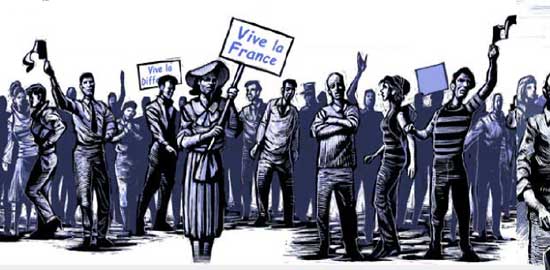Keep Your Religion at Home
John Graz May/June 2004
Getting your Trinity Audio player ready...

France clearly has a problem with its religious minorities. But is it a cultural, political, or social problem? A few years ago France took an aggressive stance against cults and sects as part of a strategy for dealing with religious minorities. While this raised opposition around the world, there was indifference within the "hexagon" of France itself. The new government eventually changed its approach under pressure from the international community. Religious minorities began to feel that they could be accepted.
Now we have another controversial religious issue in France. A commission of well-respected scholars gave a negative report about the display of religious symbols in the public sphere and, of course, in the schools. Consequently, President Jacques Chirac, usually a moderate and an ardent defender of human rights, embraced a more rigid position. The majority of the population supported his clear message: "No head scarves in public school!" In fact, any kind of clothes or symbols that "conspicuously show religious affiliation" will not be accepted in public schools. This policy is directed at "plainly excessive" crosses, skullcaps, turbans, and, of course, head scarves. Neither will "religious beards" be accepted, although secular beards will.
There are about 6 million Muslims living in France, and with the Islamic revival, more and more young girls are wearing head scarves. Some for traditional purposes, some because of family or peer pressure, but others are simply proud to show their convictions and to affirm their identity.
Many people, including the authorities, tend to believe that the young girls who wear head scarves are being forced to do so. Their freedom should be protected. But if the state allows them to impose their religious symbols in public schools, it will be the beginning of a new religious war. What is the alternative? What would happen if 1,000, 2,000, 10,000, young Muslim girls were rejected by the public schools? How could a country that supports human rights explain that kind of discrimination? "Your new law will miss its goal," stated Iranian Nobel Prize recipient Shirin Ebadi in a French magazine. In Iran, she commented, where the head scarf is compulsory, the young girls wish to take it off.
In January national French TV interviewed a young teenager who had been expelled from her school because of her head scarf. She was also denied permission to take correspondence courses that are provided free of charge by the state. Her father disagreed with her, but he respected her choice. This young girl said: "I want to be faithful to God, and I don't attack anyone with my head scarf. I am sorry, but I cannot leave my religion at the door of the public school. It makes my life more difficult, but I will give up neither my studies nor my faith."
What will be the benefit for France if it closes the door on national education, knowledge, and progress for those who have religious convictions? Who will educate the thousands of young Muslim girls who might be expelled from public schools? Muslim extremists and the far right will be the winners of that struggle. Muslims will claim there is no place for the Muslims in France. The far right will try to show that the Muslims have already taken over the country. Should the French government build special schools, paid for by the taxpayers, to educate the rejected Muslim girls?
I cannot imagine that such a rigid position will be held for long. The government will have to find a compromise.
________________________
John Graz, secretary general, International Religious Liberty Association, Washington, D.C.
________________________
Article Author: John Graz
John Graz is secretary-general of the International Religious Liberty Association.